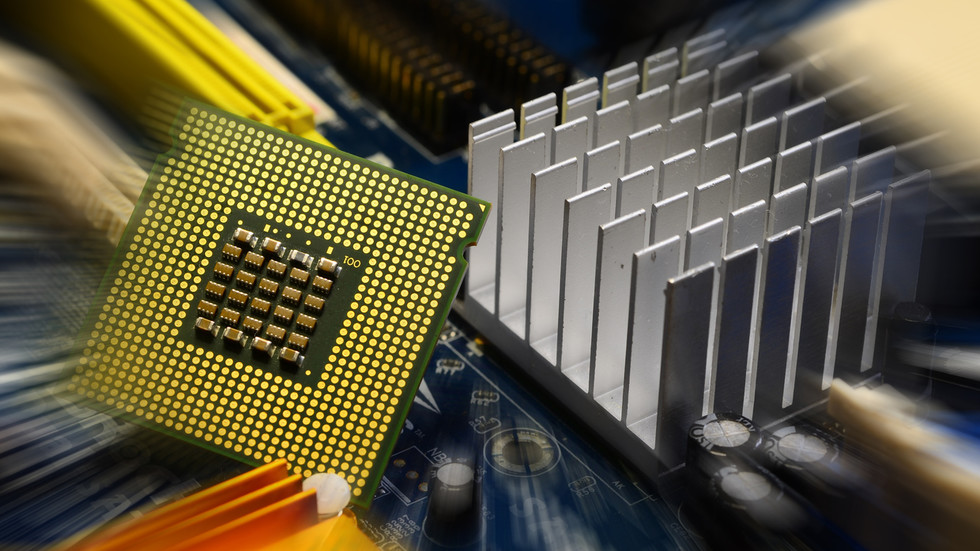
Washington has introduced a slew of export restrictions aimed at stalling advances in China’s semiconductor industry
© Getty Images
Chinese chipmakers expect to make next-generation smartphone processors as early as this year despite US attempts to hinder the Asian nation’s technological advancement, the Financial Times reported this week.
According to the report, citing people familiar with the matter, China’s top chipmaker SMIC has put together new semiconductor production lines in Shanghai to mass produce chips designed by Huawei. SMIC plans to use its existing stock of US and Dutch-made equipment to produce five-nanometer chips, the sources said.
“With the new 5nm node, Huawei is well on track to upgrade its new flagship handset and data center chips,” one of the sources told FT. In September 2023, the sanctions-hit Chinese tech giant started successfully selling its Mate 60 Pro smartphone that uses high-end seven-nanometer chips.
Faced with mounting restrictions, the Chinese government has been investing heavily to develop a self-reliant semiconductor supply chain. The administration of US President Joe Biden introduced a sweeping set of export controls in 2022 aimed at slowing China’s technological advance, claiming national security concerns. Among the measures was a ban on sales to China of certain semiconductor chips made anywhere in the world with US equipment, and a block on shipments of chips for supercomputing systems and artificial intelligence.
China has repeatedly criticized the export curbs, claiming that they run counter to globally recognized market rules. Last month, Chinese Foreign Ministry spokesperson Mao Ning said Washington’s restrictions go beyond the concept of national security and destroy supply chains.
READ MORE:
US tech restrictions on China not working – report
Beijing has also announced its own sanctions on five American defense industry companies, citing arms sales to Taiwan and the unilateral sanctions that the US has slapped on Chinese companies and individuals. Meanwhile, some industry reports have argued that Washington’s tech curbs are not working as intended while Chinese companies have continued buying US chip-making equipment using gaps in export controls.
For more stories on economy & finance visit RT’s business section
